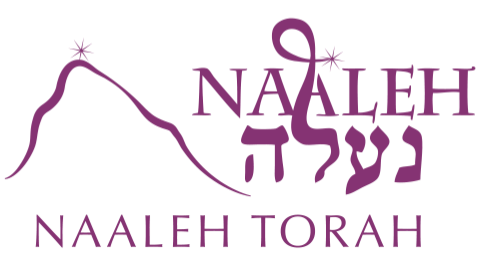Select a Shiur to play
Sub Topic
|
Filter by:
Title | Date Date |
Duration Duration |
|||
|---|---|---|---|---|---|
| Mrs. Yehudit Weiss presents an overview of places which Rashi calls 'mikrah mesoras', where letters switch as a result of the rules of dikduk.Switching LettersDescription | Pshat in Rashi | Rebbetzin Yehudit Weiss | 2009-06-30 | 47:41 | |
| Mrs. Yehudith Weiss explains the various pauses and stops found in the middle of pesukim, according to the laws of dikduk as found in Rashi's commentary.Breaks in PesukimDescription | Pshat in Rashi | Rebbetzin Yehudit Weiss | 2009-06-29 | 46:59 | |
| Mrs. Yehudit Weiss explains Rashi's overview of texts that are abbreviated, which he calls 'mikra katzar'.Abbreviated TextDescription | Pshat in Rashi | Rebbetzin Yehudit Weiss | 2009-06-17 | 45:59 | |
| Mrs. Yehudit Weiss surveys Rashi's discussion of the Hebrew letter 'Hai' at the beginning of a word, and how it affects the word's meaning. This class focuses on 'Hai Hashe'eilah', 'Hai Hayedi'a', and 'Hai Hamegama'.The Letter 'Hei'Description | Pshat in Rashi | Rebbetzin Yehudit Weiss | 2009-06-16 | 52:35 | |
| Mrs. Yehudit Weiss explains Rashi's discussion of hat'ama, accentuation of words. All words in Hebrew are either Mil'el or Mil'ra. The accent of a given word may change depending on its conjugation and its place in a phrase, and the meaning of a word can change due to its accentuation as well.Dikduk Rashis Explaining AccentuationDescription | Pshat in Rashi | Rebbetzin Yehudit Weiss | 2009-06-15 | 44:19 | |
| Mrs. Yehudith Weiss continues her study of Biblical nouns, as addressed by Rashi in his commentary on the Torah. This class talks about nouns and their relationship to the words before and after them. This unique class, given in simple Hebrew, sheds light on the important but often neglected section of Rashi's commentary - the grammatical Rashis.Rashi's Discussion of Nouns, Part 3Description | Pshat in Rashi | Rebbetzin Yehudit Weiss | 2009-03-25 | 53:13 | |
| Mrs. Yehudith Weiss continues her discussion of the topic of nouns as they are addressed in Rashi's commentary. This class explains and cites examples of nouns that have 'female' conjugations. This unique class, given in simple Hebrew, sheds light on the important but often neglected section of Rashi's commentary - the grammatical Rashis.Rashi's Discussion of 'Female' NounsDescription | Pshat in Rashi | Rebbetzin Yehudit Weiss | 2009-03-24 | 49:44 | |
| Mrs. Yehudit Weiss explains the qualities of a noun in the Torah, according to Rashi. This class, taught in basic Hebrew with some English, clarifies many important comments of Rashi which are often skipped or misunderstood.Rashi's Comments on Nouns in the TorahDescription | Pshat in Rashi | Rebbetzin Yehudit Weiss | 2009-03-05 | 46:00 | |
| In this class, delivered in basic Hebrew, Mrs. Yehudit Weiss surveys Biblical words Rashi calls 'notrikon', contractions or combinations of two or three words into one. This important rule in Biblical grammar allows one to understand many difficult and unfamiliar words found in the Torah.Dikduk Rashis on ContractionsDescription | Pshat in Rashi | Rebbetzin Yehudit Weiss | 2009-03-04 | 51:08 | |
| Mrs. Yehudit Weiss explains numerous examples of root words that have silent or passive letters, called gizrot hapo'al. This unique class, given in simple Hebrew, sheds light on the important but often neglected section of Rashi's commentary - the grammatical Rashis.Rashi's Explanation of Shorashim withDescription | Pshat in Rashi | Rebbetzin Yehudit Weiss | 2009-03-03 | 49:40 | |
| Mrs. Yehudit Weiss demonstrates various examples of 'vav hahipuch', the vav at the beginning of a word that reverses the meaning from past to future tense, or from future to past tense.The Reversable Vav: Dikduk Rashi's Explaining 'Vav Hahipuch'Description | Pshat in Rashi | Rebbetzin Yehudit Weiss | 2009-02-18 | 50:19 | |
| Mrs. Yehudit Weiss presents a survey of Rashi's explanations of the three tenses relating to verbs.The Dikduk of Rashi: Past, Present, and FutureDescription | Pshat in Rashi | Rebbetzin Yehudit Weiss | 2009-02-17 | 50:19 | |
| Mrs.Yehudith Weiss explores binyan Nif'al, as seen through Rashis' comments throughout the Chumash. This unique class unveils the beauty of this rarely-explored aspect of the Chumash.The Dikduk of Rashi: Passive VerbsDescription | Pshat in Rashi | Rebbetzin Yehudit Weiss | 2009-02-04 | 44:00 | |
| Mrs. Yehudit Weiss discusses various examples of Rashi's commentaries relating to causative verbs (binyan hif'il and hitpa'el).The Dikduk of Rashi: Causative VerbsDescription | Pshat in Rashi | Rebbetzin Yehudit Weiss | 2009-02-03 | 49:14 | |
| Mrs. Yehudit Weiss begins to explore various examples of Rashi's explanation of Active verbs, and how the meaning of the Biblical text changes as words are conjugated in different forms. This class introduces the Dikduk of Rashi and sheds light on many of his previously inaccessible comments.Rashi's Explanation of Active VerbsDescription | In Depth Chumash, Pshat in Rashi | Rebbetzin Yehudit Weiss | 2009-01-20 | 46:01 |
About Rebbetzin Yehudit Weiss
Rebbetzin Weiss taught on the high school and post-high school level in Bais Yaakovs in Israel for over 30 years. An expert in Hebrew grammar, she has worked as a curriculum developer and teacher trainer as well as an editor for various Torah publications. She resides in Jerusalem, Israel.
Contact Rebbetzin Yehudit Weiss
This shiur is available in audio format only

